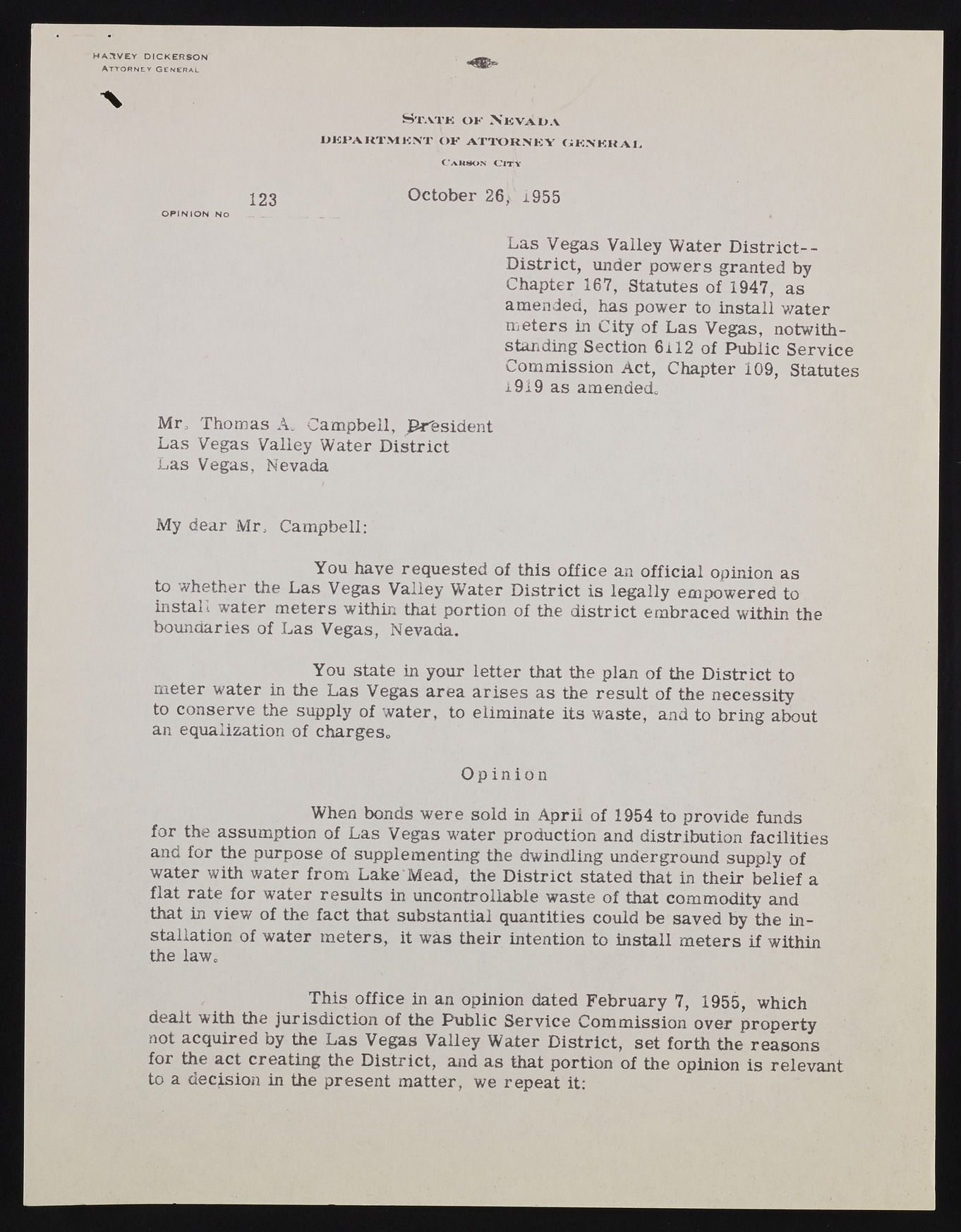Copyright & Fair-use Agreement
UNLV Special Collections provides copies of materials to facilitate private study, scholarship, or research. Material not in the public domain may be used according to fair use of copyrighted materials as defined by copyright law. Please cite us.
Please note that UNLV may not own the copyright to these materials and cannot provide permission to publish or distribute materials when UNLV is not the copyright holder. The user is solely responsible for determining the copyright status of materials and obtaining permission to use material from the copyright holder and for determining whether any permissions relating to any other rights are necessary for the intended use, and for obtaining all required permissions beyond that allowed by fair use.
Read more about our reproduction and use policy.
I agree.Information
Digital ID
Permalink
Details
More Info
Rights
Digital Provenance
Publisher
Transcription
H A R V E Y D I C K E R S O N At t o r n e y G e n e r a l S tatk ok N ev a da UKI'AKTMKNT OK ATTORNKY OK.NKHAI, C a k s o n C l ^ Y 123 October 26> i955 O P I N I O N N O .... . Las Vegas Valley Water D istrict-- District, under powers granted by Chapter 167, Statutes of 1947, as amended, has power to install water meters in City of Las Vegas, notwithstanding Section 6 il2 of Public Service Commission Act, Chapter 109, Statutes i919 as amended. Mr. Thomas A. Campbell, president Las Vegas Valley Water District Las Vegas, Nevada My dear Mr. Campbell: You have requested of this office an official opinion as to whether the Las Vegas Valley Water District is legally empowered to install water meters within that portion of the district embraced within the boundaries of Las Vegas, Nevada. You state in your letter that the plan of the District to meter water in the Las Vegas area arises as the result of the necessity to conserve the supply of water, to eliminate its waste, and to bring about an equalization of charges. O p in io n When bonds were sold in April of 1954 to provide funds for the assumption of Las Vegas water production and distribution facilities and for the purpose of supplementing the dwindling underground supply of water with water from Lake Mead, the District stated that in their belief a flat rate for water results in uncontrollable waste of that commodity and that in view of the fact that substantial quantities could be saved by the installation of water meters, it was their intention to install meters if within the law. This office in an opinion dated February 7, 1955, which dealt with the jurisdiction of the Public Service Commission over property not acquired by the Las Vegas Valley Water District, set forth the reasons for the act creating the District, and as that portion of the opinion is relevant to a decision in the present matter, we repeat it:

